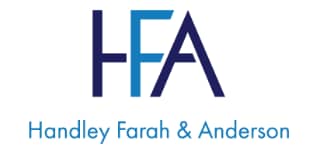The full and equal enjoyment of life that many of us take for granted is often unfairly denied to members of our disability community. More than 25 years after the passage of the Americans with Disabilities Act, there still exist unnecessary barriers to accessibility in employment, government services, education, housing and places of public accommodation.
Our Practice
Handley Farah & Anderson works to tear down many of these barriers and create a more just and accessible society, where we can work, play, and live as members of a common community. Our experienced lawyers have litigated some of the most important disability rights case in the country, halting exclusionary and discriminatory practices and securing fair compensation for those denied access. In pursuing these cases, our lawyers have represented both persons with disabilities and nonprofit organizations that advocate for the disability community.
Our disability rights practice has particularly focused on two forms of inaccessibility: (1) denial of physical access to public accommodations; and (2) denial of electronic access to critical technologies.
Accessible Technology
Advances in technology have the potential to make the tasks of daily life easier and more enjoyable for all people. From smartphone apps to automated kiosks to online courses to medical devices, our world is constantly developing new ways to interface with our work, our play, our homes and our loved ones. However, when companies fail to consider whether new technologies are accessible to persons with disabilities, such advances often make life more, rather than less, difficult for this segment of our community. Unless developers ensure that accessibility is built into these technologies, the resulting products serve only to isolate and exclude many members of our disability community.
Handley Farah & Anderson specializes in ensuring that emerging technologies are accessible to everyone. Our lawyers have compelled government agencies and private companies to make their websites accessible to screen-reader users and to make videos on those websites captioned for the deaf and hard-of hearing. Our lawyers have required developers of on-line courses to provide a learning environment that is accessible to all students. Our lawyers have ensured that companies that use touch-screen kiosks provide a means by which blind users can interface with such kiosks. And we are just getting started.
Physical Barriers to Accessibility
For decades, federal and many state laws have required that stores, restaurants, theaters, offices, parks and other spaces open to the public be made accessible to the disability community. Yet, in public spaces around the country, significant physical barriers to accessibility remain.
Handley Farah & Anderson devotes much of its disability rights practice to ensuring that physical spaces are made accessible to everyone. Our attorneys have successfully compelled the elimination of exclusionary physical barriers at apartment complexes, city parks, retail stores, restaurants and public byways around the country.
